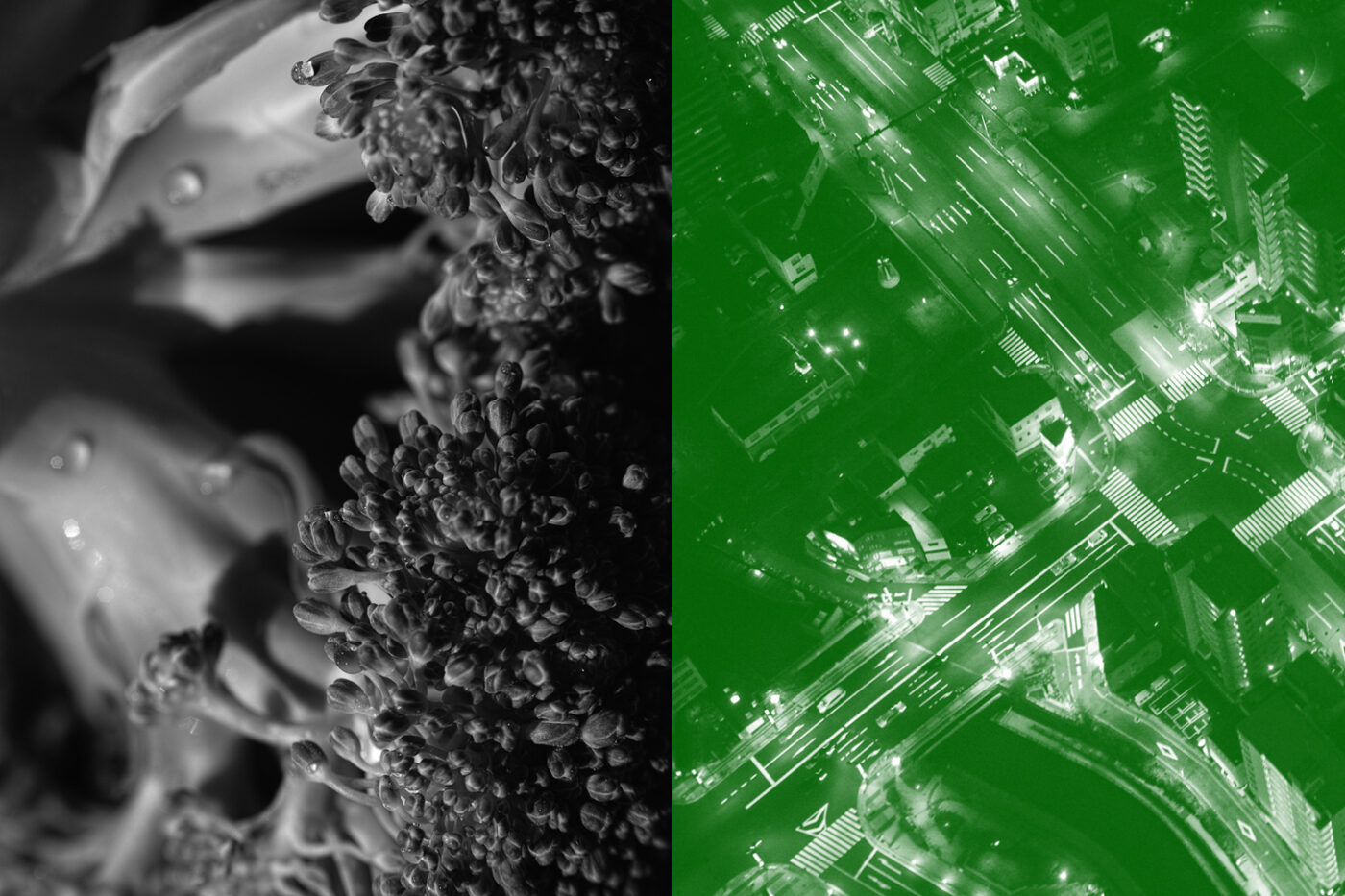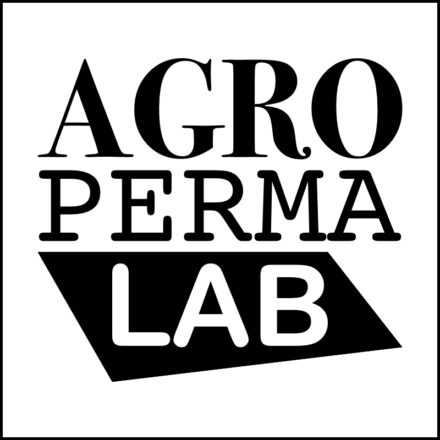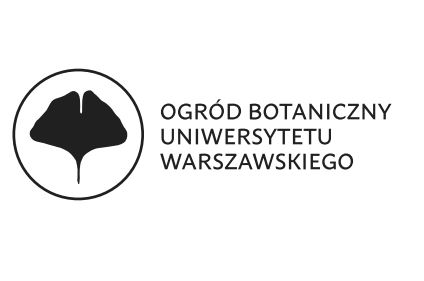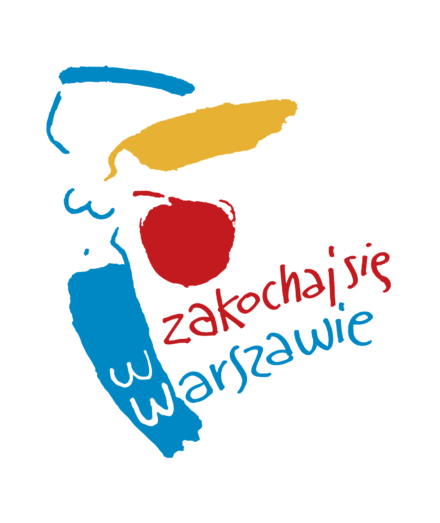Towards solidary nutrition. Warsaw 2030+
Curator: Anna Galas-Kosil

According to data collected by Eurostat in 2019, Poland is the 5th country in the UE when it comes to the amount of food we throw away. Annually, it amounts to 9 tons of food that ends up in the trash, mostly bread, vegetables and fruit. We waste household groceries the most by badly planning our shopping, or by not planning at all, buying too much, or not paying attention to expiry dates.
It seems that the crisis caused by the pandemic changes our consumer behaviour, it prompts us to limit our consumption, consider our shopping lists better and limit the wastage ourselves. We can look at the current situation as an opportunity, an impulse to change our nutritional habits towards more sustainable, ecological and local food systems.
The point of departure for a deeper discussion and analysis within the discursive series will be sociological research carried out in May and June 2020, i.e. during the first wave of the COVID-19 pandemic by the National Centre for Climate Change (KOKZ). We will try to look at how the current situation affects everyday habits of Poles, do our nutritional habits change and how does it influence the awareness of the processes related to climate change. We will talk with our guests about e.g. how the principles of food sovereignty can be executed, we will discuss alternative models of agriculture, shortening supply chains, and finally, how to promote among people a deeper understanding of where our food comes from, what affects its quality and nutritional value.
The space for the exchange of knowledge and practices will be provided by the International Permaculture Education Forum which will be organised in May. It will be accompanied by workshops for children and their guardians. The entire project will be summarised in a web document, as a multi-media, futuristic narrative. From the perspective of the coming decade, we will try to look at Warsaw which decided to support local food supply systems and initiatives facilitating the residents access to healthy, local food, where producers and consumers cooperate in solidarity to improve the resilience and well-being of the city.
Project curator:
Discursive series – programme
16.02.2021 | 18:00 | Tuesday
Changing habits – the first step towards food sovereignty
Participrians: Justyna Orłowska PhD (KOZK), Marta Łukowska (Nyéléni Polska)
Moderator: Anna Galas-Kosil
16.03.2021 | 18:00 | Tuesday
From the ground to the plate. On the quality of meals
Participrians: Justyna Orłowska PhD (KOZK), Marta Kurkiewicz (Wiejska Kooperatywa Spożywcza), Wioletta Olejarczyk (Gospodarstwo Słoneczna25 / Jurajska Kooperatywa Spożywcza), Marek Styczyński (Ośrodek Praktyk Bioregionalnych BIOTOP)
Moderator: Weronika Koralewska (Agro-Perma Lab)
13.04.2021 | 18:00 | Tuesday
Edible city. Towards a new model
Participants: Piotr Woźniakowski (KOZK), Wojtek Mejor (Nyéléni Polska / Dobrze), Klaudia Kryńska (Służewiecki Dom Kultury)
Moderators: Joanna Bojczewska (Agro-Perma-Lab / Ekopoletko), Anna Galas-Kosil (Biennale Warszawa)
The meetings will be held on Zoom. Each event requires separate registration via the application form on our website. We will e-mail the link to the meeting to registered participants. We are planning a discussion which will be streamed on our Facebook and YouTube channels, as well as recorded and archived on YouTube and in Resources on our website. If you don’t consent to making your image public, we ask you to keep your camera and microphone off throughout the entire event. You can send your questions on the chat. We encourage everyone to join the discussion.
International Forum of Permaculture Educators
COMMUNITY – SENSIBILITY – IMAGINATION
Biennale Warszawa and Agro Perma Lab Foundation would like to invite activists, representatives of initiatives based in Warsaw or working with Warsaw, such as: community gardens, food cooperatives, family garden allotments, CSAs, countrywomen’s associations, daycares with gardens, educational homesteads, as well as farmers, gardeners working in permaculture, educators in natural building and permaculture pioneers to participate in the International Forum of Permaculture Educators which will be held on 15 and 16 May in Warsaw.
Research conducted by the Polish National Centre for Climate Change during the first wave of the pandemic indicates that in the first quarantine period, many of us have rediscovered the importance of the contact with nature in our lives – the role of spending time in gardens, parks, forests or in garden allotments. It was an opportunity not only to slow down and center ourselves, but often also to form a deeper relationship with nature, to start growing our own vegetables, herbs, or fruit.
How to maintain that change and what can constitute an alternative to the previous system? How can we join into the transformation that will allow us all to profit from healthier food and co-create the conditions to produce it? This new path for the development of urban gardening and agriculture could be provided by permaculture – permanent (durable, indestructible) cultivation – old knowledge for new times. The permaculture movement in the world – from London to Detroit – has already contributed to the transformation of numerous urban spaces into life-giving gardens. We can use this mode of agriculture, so close to the natural ecosystem, and apply it in the post-pandemic reality. Permaculture, which allows designing and creating edible gardens for cities, could be a chance to develop food solidarity, as well as support local food practices and policies, and circular economy.
International Forum of Permaculture Educators will be the first event of its kind in Poland. We want to provide an opportunity for development to individuals who are already active leaders of permaculture communities as well as those who only start out as educators. The objective of the forum is networking for people involved in permaculture education, who already know its premises and who work for food solidarity in Warsaw, in Masovia, and within initiatives working with such people. We will invite selected participants as well as foreign guests to discuss how to teach permaculture in the city, how to develop your workshop and how to increase social awareness and fully harness the potential of its premises.
On the first day, during a closed workshop session with selected participants, we will consider work methods and tools of permaculture educators. We will also try to ponder what could a roadmap look like for urban development and for the relationship between the city and the country in the coming years.
The second day will take the form of a public forum, streamed online via organisers’ communication channels. Participants and invited guests will be asked to present a short talk. The entire event will conclude with a summarizing debate.
Our bases will comprise the following methods:
— informal education in grass-roots social movements,
— empathetic and reflective pedagogies,
— visionary processes.
You can apply to participate in the Forum by completing out recruitment survey. The number of places is limited. Recruitment will begin on 5 April 2021, and before 12 April we will announce the list of selected participants. The Forum will be held in English. Biennale Warszawa does not cover costs of travel and accommodation of Forum participants in Warsaw. Persons selected in the recruitment process and invited to participate in the Forum will receive a remuneration of PLN 400 gross / PLN 366 net (participants will sign with the organiser a contract for a specific work whose subject will be their active participation in the Forum and preparing and presenting a short talk.)
In the recruitment process we will take into account whether:
— the participant represents a community: organisation, association, informal collective or grass-roots movement, local community producing food, academic or research institution, or works with others as an independent educator;
— the subject of activities and mission of the native organisation / community is in line with the principles of food sovereignty;
— the potential of the invited person as an educator is supported by real actions;
— the participant would be willing and able to apply experience gained during the Forum in practice and co-create the solidarity network after the event.
One of our priorities is diversity among participants – consequently, a person from a less represented sector could be selected for the forum.
Intergenerational workshops
Intergenerational workshops
22.05.2021 | 10:00–13:00 | Saturday
Sowing obsession, or how to transform your balcony into a garden
Workshop in cooperation with Slużewski Dom Kultury
Instructor: Klaudia Kryńska
Venue: Służewski Dom Kultury
23.05.2021 | 11:00–12:30 | Sunday
Edible plants
Workshop in cooperation with the Botanical Gardens of the University of Warsaw
Instructor: Magdalena Oprządek
Venue: Jabłonna Palace, Wał Wiślany
29.05.2021 | 10:00–13:00 | Saturday
Discover the biotreasure in your own trash, or the power of composting
Workshop in cooperation with the Botanical Gardens of the University of Warsaw
Instructor: Agnieszka Chołuj
Venue: Botanical Gardens of the University of Warsaw
The intergenerational workshop is intended for children aged 7–14 with guardians (1+1). Participation is free. Registration required via the application form on our website. The number of places is limited, participants accepted on the first come, first served basis.
Web documentary – Edible City Warsaw
Announcement
Where did the carrot on our table come from? What ends on our plates often has to come a long way, even though local resources allow for growing it on an urban farm, or in a community garden, or for getting it to the market within a short food supply chain. Can city become independent from large corporations and influence how what we eat is produced and distributed? What is the future of our nutrition? Will Warsaw join cities like Vienna, London, or Paris that map out trends in urban agriculture and horticulture? Edible City Warsaw is a futuristic, multi-media tale of how Warsaw could reclaim food sovereignty. The web documentary will premiere online in July.
Compost is the end and the beginning of life, decay and renewal. Fertilizer created by organic waste and remains of plants enable keeping soil fertile. It is the foundation of the life-giving circulation of matter, as well as a metaphor of the circulation and circular economy, oriented on balance and regeneration. Edible City Warsaw helps imagine the future of the capital in which food acquisition is based on essential permaculture resources, like care for the Earth, care for the people and farming geared not towards quantity and profit, but synergy with the planet.
Edible City Warsaw is a multi-media tale composed of several elements: text, photographs and audio footage, expanded with references to source materials that enable learning in detail about food sovereignty. The project website will be available in Polish and English, and adopted to the needs of persons with disabilities.
Our web documentary will feature conversations with people who develop niche, alternative models of producing and distributing food, which could become key for the new food policy of the city, and help redesign contemporary agglomerations. They show that thanks to the shortening of supply chains and cooperating with local farmers, healthy and ecological food does not have to travel hundreds of kilometers to arrive on our plates.
The web doc will contain examples of five models of activities within a single edible city. Community Supported Agriculture is an initiative based on shared responsibility and building consumer and farmer relations. Food cooperatives connect its members who can buy food from local producers. Community gardens and family garden allotments are urban undertakings than enable rebuilding contact with nature and independent cultivation of vegetables and fruit. A small ecological restaurant relies on local, seasonal product acquired from local farmers.





